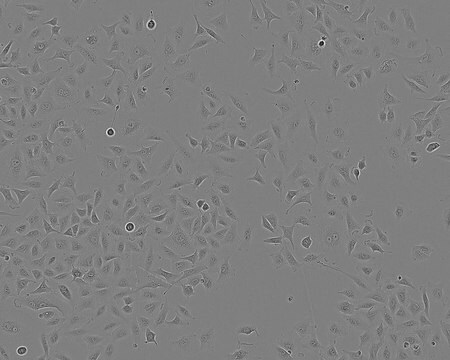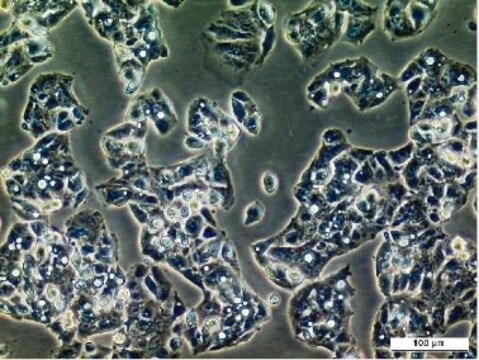MIA-Pa-Ca-2
85062806, human pancreas, Epithelial
Synonym(s):
MIA PaCa-2 Cells, MIA-PaCa2 Cells, MIAPACA-2 Cells, PaCa2 Cells
About This Item
Recommended Products
product name
MIA-Pa-Ca-2, 85062806
biological source
human pancreas
growth mode
Adherent
karyotype
Modal no. 61; hypotriploid
morphology
Epithelial
products
Not specified
receptors
Not specified
technique(s)
cell culture | mammalian: suitable
relevant disease(s)
cancer
shipped in
dry ice
storage temp.
−196°C
Cell Line Origin
Cell Line Description
Application
DNA Profile
CSF1PO: 10
D13S317: 12,13
D16S539: 10,13
D5S818: 12,13
D7S820: 12,13
THO1: 9,10
TPOX: 9
vWA: 15
Culture Medium
Subculture Routine
Other Notes
Certificates of Analysis (COA)
Search for Certificates of Analysis (COA) by entering the products Lot/Batch Number. Lot and Batch Numbers can be found on a product’s label following the words ‘Lot’ or ‘Batch’.
Already Own This Product?
Find documentation for the products that you have recently purchased in the Document Library.
Related Content
We offer more than twenty ECACC pancreatic cancer cell lines of human, rat, or mouse origin, including PANC-1. Choose cells based on mutations in KRAS, TP53, SMAD4, and other key genes, or by demonstrated suitability for applications such as toxicity, xenograft models, and drug response studies.
Our team of scientists has experience in all areas of research including Life Science, Material Science, Chemical Synthesis, Chromatography, Analytical and many others.
Contact Technical Service



